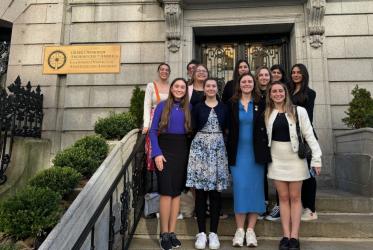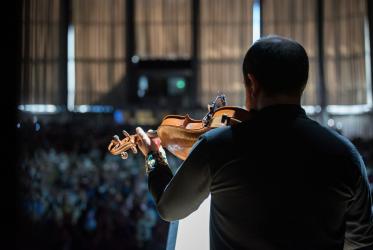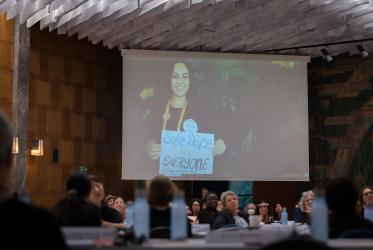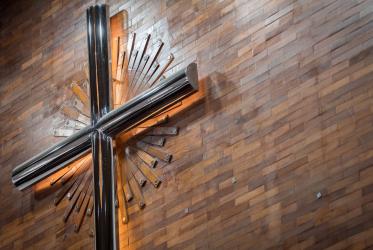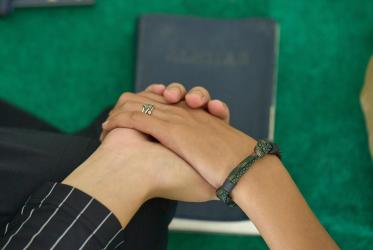Displaying 1 - 20 of 208
A global outlook from different angles
10 April 2024
What can churches do to prevent modern slavery?
22 February 2024
“Circle of Prayer” reverberates out from Dover—to the world
21 February 2024
Ellyanne Chlystun-Githae Wanjiku to COP28: “listen more to children”
13 December 2023
WCC webinar explores decolonizing beauty
11 December 2023







